Asus Maximus VIII Hero Alpha Review
Written by Antony Leather
April 29, 2016 | 10:59
Tags: #best-skylake-motherboard #best-z170-motherboard #lga1151 #rog #skylake #z170
Companies: #asus

Total War: Attila
Publisher: SegaWe use the built-in Londinium benchmark of Total War: Attila, which runs through an automatic play-through scene in the game. Go to Custom Settings and the benchmark tool is at the bottom. We turn off anti-aliasing and select the quality setting, with v-sync and SSAO disabled. We use Fraps to record a 50-second sequence from the start of the benchmark.
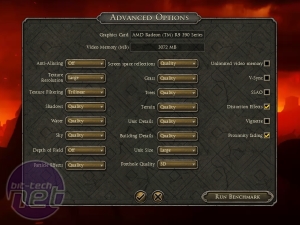
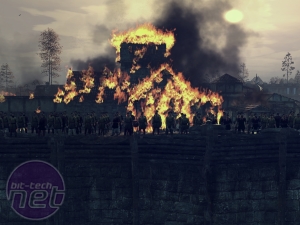
Total War: Attila
1,920 x 1,080, Quality settings
- Asus Maximus VIII Hero Alpha (4.8GHz)
- MSI Z170A Gaming Pro Carbon (4.8GHz)
- Gigabyte Z170MX-Gaming 5 (4.8GHz)
- Asus Sabertooth Z170 Mark 1 (4.8GHz)
- Asus Maximus VIII Impact (4.9GHz)
- MSI Z170I Gaming Pro AC (4.6GHz)
- MSI Z170A XPOWER Gaming Titanium Edition (4.8GHz)
- Asus Z170i Pro Gaming (4.8GHz)
- Gigabyte Z170X-Gaming 7 (4.8GHz)
- Asus Maximus VIII Hero (4.8GHz)
- MSI Z170A XPOWER Gaming Titanium Edition (Stock)
- Gigabyte Z170-Gaming K3 (4.8GHz)
- MSI Z170A SLI Plus (4.7GHz)
- Asus Maximus VIII Hero (Stock)
- MSI Z170A Gaming Pro Carbon (Stock)
- Gigabyte Z170MX-Gaming 5 (Stock)
- Asus Sabertooth Z170 Mark 1 (Stock)
- Asus Z170i Pro Gaming (Stock)
- Gigabyte Z170-Gaming K3 (Stock)
- Asus Maximus VIII Hero Alpha (Stock)
- Asus Maximus VIII Impact (Stock)
- Gigabyte Z170X-Gaming 7 (Stock)
- MSI Z170A SLI Plus (Stock)
- MSI Z170I Gaming Pro AC (Stock)
-
-
60
-
70
-
-
-
60
-
70
-
-
-
60
-
70
-
-
-
60
-
70
-
-
-
60
-
70
-
-
-
60
-
70
-
-
-
60
-
70
-
-
-
60
-
70
-
-
-
60
-
70
-
-
-
60
-
70
-
-
-
60
-
70
-
-
-
59
-
70
-
-
-
59
-
69
-
-
-
59
-
69
-
-
-
58
-
69
-
-
-
58
-
69
-
-
-
58
-
69
-
-
-
58
-
69
-
-
-
58
-
67
-
-
-
57
-
68
-
-
-
57
-
68
-
-
-
57
-
67
-
-
-
56
-
66
-
-
-
56
-
66
-
0
10
20
30
40
50
60
70
Frame per second
-
Min
-
Avg
Unigine Valley 1.0
Publisher: UnigineUnigine's free Valley 1.0 benchmarking tool works well as a graphics benchmark as it is GPU-limited and is thus incredibly taxing on the GPU whilst placing the CPU under very little stress. Unigine's scoring system is effectively linear: a card with 2,000 points is considered twice as fast as one with 1,000 points, and half as fast as one with 4,000 points. As such, you can easily replicate and run the test on your own system to gauge roughly how big a difference an upgrade would likely make for you.
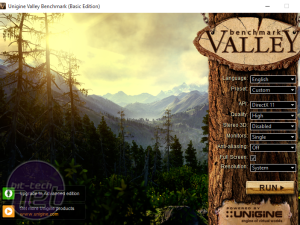
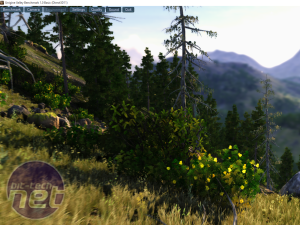
Unigine Valley
1,920 x 1,080, High settings
- MSI Z170A XPOWER Gaming Titanium Edition (4GHz/4.8GHz)
- Asus Z170i Pro Gaming (4GHz/4.8GHz)
- MSI Z170A Gaming Pro Carbon (4GHz/4.8GHz)
- Gigabyte Z170X-Gaming 7 (4GHz/4.8GHz)
- Asus Maximus VIII Hero Alpha (4GHz/4.8GHz)
- Gigabyte Z170MX-Gaming 5 (4GHz/4.8GHz)
- MSI Z170I Gaming Pro AC (4GHz/4.6GHz)
- Asus Maximus VIII Hero (4GHz/4.8GHz)
- Asus Sabertooth Z170 Mark 1 (4GHz/4.8GHz)
- MSI Z170A SLI Plus (4GHz/4.7GHz)
- Asus Maximus VIII Gene (4GHz/4.8GHz)
- Asus Z170-Deluxe (4GHz/4.8GHz)
- Asus Maximus VIII Impact (4GHz/4.9GHz)
- MSI Z170A Gaming M5 (4GHz/4.6GHz)
- Gigabyte Z170-Gaming K3 (4GHz/4.8GHz)
-
-
4874
-
4939
-
-
-
4867
-
4947
-
-
-
4843
-
4914
-
-
-
4831
-
4942
-
-
-
4826
-
4877
-
-
-
4821
-
4955
-
-
-
4820
-
4951
-
-
-
4815
-
4914
-
-
-
4810
-
4962
-
-
-
4805
-
4809
-
-
-
4786
-
4920
-
-
-
4769
-
4943
-
-
-
4751
-
4973
-
-
-
4751
-
4893
-
-
-
4669
-
4865
-
0
1000
2000
3000
4000
5000
Score, higher is better
-
Stock
-
Overclocked
3DMark Fire Strike
Publisher: FuturemarkFire Strike is a showcase DirectX 11 benchmark designed for today's high-performance gaming PCs. It is 3DMark's most ambitious and technical benchmark ever, featuring real-time graphics rendered with detail and complexity far beyond what is found in other benchmarks and games today.
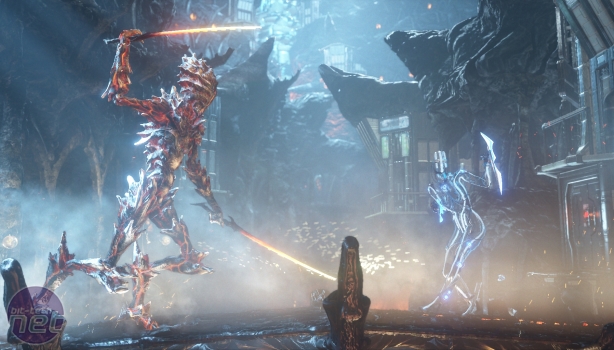
3DMark Fire Strike
Overall Score
- Asus Maximus VIII Hero (4GHz/4.8GHz)
- MSI Z170A XPOWER Gaming Titanium Edition (4GHz/4.8GHz)
- MSI Z170I Gaming Pro AC (4GHz/4.6GHz)
- MSI Z170A SLI Plus (4GHz/4.7GHz)
- Asus Maximus VIII Hero Alpha (4GHz/4.8GHz)
- Gigabyte Z170X-Gaming 7 (4GHz/4.8GHz)
- MSI Z170A Gaming Pro Carbon (4GHz/4.8GHz)
- Asus Maximus VIII Impact (4GHz/4.8GHz)
- Asus Sabertooth Z170 Mark 1 (4GHz/4.8GHz)
- MSI Z170A Gaming M5 (4GHz/4.6GHz)
- Asus Z170i Pro Gaming (4GHz/4.8GHz)
- Gigabyte Z170MX-Gaming 5 (4GHz/4.8GHz)
- Gigabyte Z170-Gaming K3 (4GHz/4.8GHz)
-
-
11307
-
11363
-
-
-
11302
-
11475
-
-
-
11271
-
11441
-
-
-
11265
-
11384
-
-
-
11240
-
11390
-
-
-
11237
-
11459
-
-
-
11206
-
11446
-
-
-
11157
-
11460
-
-
-
11137
-
11475
-
-
-
11112
-
11193
-
-
-
11099
-
11442
-
-
-
11087
-
11257
-
-
-
11069
-
11305
-
0
2500
5000
7500
10000
12500
Seconds, lower is better
-
Stock
-
Overclocked









Want to comment? Please log in.